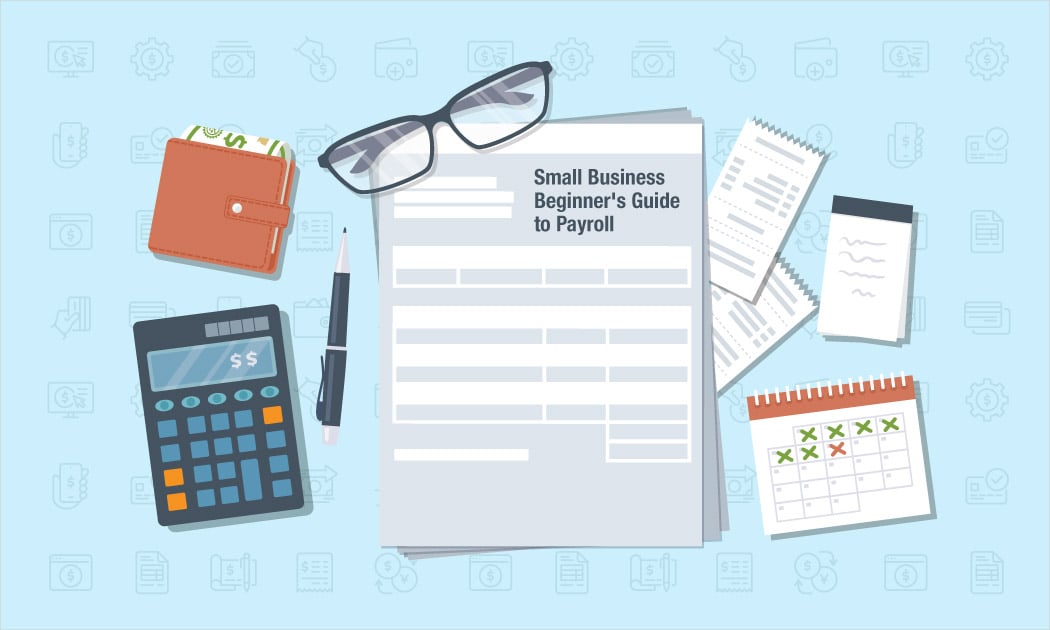The Payroll Blog
News, tips, and advice for small business owners
- Home
- Resources
- Payroll Blog
- Small Businesses Struggled With Payroll Even Before COVID-19
Small Businesses Struggled With Payroll Even Before COVID-19
Even in the best of times payroll and related taxes can be a confusing and moving, target for small business owners, with costly (or worse) penalties for getting it wrong.

Add in a global pandemic, its related economic fallout, thousands of pages of relief legislation and related guidance issued by the federal government, and daily changes to state regulations on top of that, and you’ve barely scratched the surface of the complexities and challenges small business owners are facing when it comes to staying on top of payroll and tax regulations in a COVID-19 world.
There’s no denying that small businesses are the backbone of the U.S. economy, with nearly 21 million Americans on a small business’ payroll. With some of these businesses hardest hit by COVID-19 in terms of impacted business operations, furloughs, or temporary closures, being prepared to get payroll back up and running is a critical component of the return to work process:
- Several different COVID-19 economic relief provisions are directly tied to payroll operations, including the Paycheck Protection Program (PPP), which requires that 60% of loan proceeds be applied toward payroll costs to maximize forgiveness of such loans, and further requires that the business restore, or make all good faith efforts to restore, wages and staffing levels to pre-pandemic norms. Additional employer tax credits and deferrals on offer through the Families First Coronavirus Response Act (FFCRA) and the Coronavirus Aid, Relief, and Economic Security (CARES) Act also rely on wages and taxes accounted for through payroll.
- With many furloughed or laid off employees receiving increased unemployment benefits, the appeal of returning to an uncertain future with a potentially insolvent employer may not be clear.
- Pre-COVID-19 our 2020 Payday Report uncovered that more than a quarter of small business employees had experienced an inaccurate paycheck, in which 72% of cases resulted in the employee being underpaid.
Small businesses looking to staff up and make the most of COVID-19 relief legislation will need to be prepared for a smooth return to their payroll processing and the routine of payday…and that starts with getting a handle on the changing landscape of taxes and regulations.
At the end of 2019, just ahead of the COVID-19 pandemic’s spread across the globe, we surveyed 500 small business owners for our 2020 Payroll and Taxes Regulations Report to get a better sense of their understanding and pain points when it comes to payroll, taxes, and regulations.
How Small Business Owners Feel About Payroll and Taxes
If the mere mention of payroll gives you anxiety or if you’ve wondered how your current payroll processes impact your business, you’re not alone. Our survey revealed staying current with payroll taxes and regulations at the federal, state, and local level can prove significantly challenging:
- The landscape is changing too quickly for small businesses to keep up: While most respondents expressed confidence in their familiarity with tax code and regulations, as many as 59% could not distinguish real regulations from fictional ones in our survey.
- There’s too much noise and they don’t know what sources to trust: Small business owners say they primarily hear about regulations and laws through federal and state sources (45%), the news (44%) or word-of-mouth within the small business community (29%).
And when it comes to the work involved in managing payroll, here’s what they had to say:
- It’s tedious. According to our 2020 Payroll and Taxes and Regulations Report, 42% of business owners with less than 20 employees use a manual “do-it-yourself” payroll method.
- It’s time-consuming. About a quarter of employers spend up to two full workdays per month on payroll. With many having lost days, weeks, or months to COVID-19, this may seem like time they don’t have to spare as they reopen and return to work.
Add this all together and what do you get? Many small businesses at risk of overlooking new payroll requirements or tax regulations, resulting in payroll inaccuracies and/or potential fines and penalties.
But It Doesn’t Have to Be This Way
Whether you don’t have the time to devote to administrative tasks like payroll as you get your business reopened and running, or you need to ensure you are taking advantage of the regulatory changes stemming from COVID-19 relief legislation, you have options that can provide your small business protection and peace of mind vs. going it alone.
One such option is to consider an online payroll service provider.
Why? Well, for one thing, it’s what we do. At SurePayroll, small business IS our business, and we’re here to stay on top of taxes and compliance requirements to keep your business back in business. Payroll has also played a key and unique role for small businesses taking advantage of COVID-19 economic relief, from providing necessary supporting data and reporting to apply for and seek forgiveness of PPP loans, to taking advantage of FFCRA COVID-19 paid leave wage credits and CARES Act employer tax deferrals. With guidance seemingly changing every day, your payroll provider can serve as a compliance and HR solution resource,
With everything you’ve got going on when it comes to reopening your business and ensuring the health and safety of your employees, processing payroll shouldn’t be a source of added stress. To learn more about the impact of payroll on small businesses, as well as how to find a payroll provider who can help support you through the ups and downs of small business, download the full report.
Related Blog Posts
View Our Plans and Pricing
Small Business Is Our Business.
This website contains articles posted for informational and educational value. SurePayroll is not responsible for information contained within any of these materials. Any opinions expressed within materials are not necessarily the opinion of, or supported by, SurePayroll. The information in these materials should not be considered legal or accounting advice, and it should not substitute for legal, accounting, and other professional advice where the facts and circumstances warrant. If you require legal or accounting advice or need other professional assistance, you should always consult your licensed attorney, accountant or other tax professional to discuss your particular facts, circumstances and business needs.



